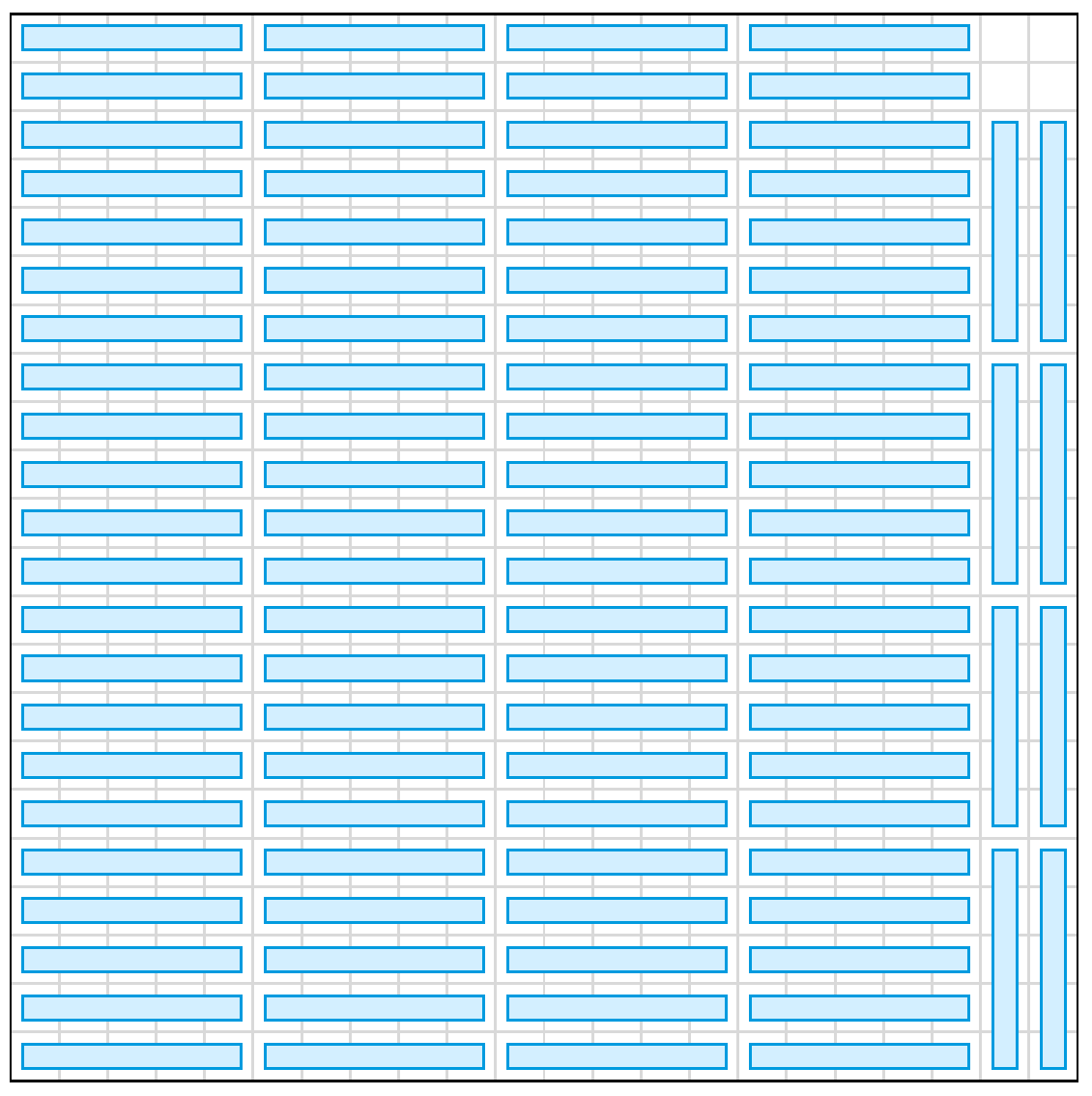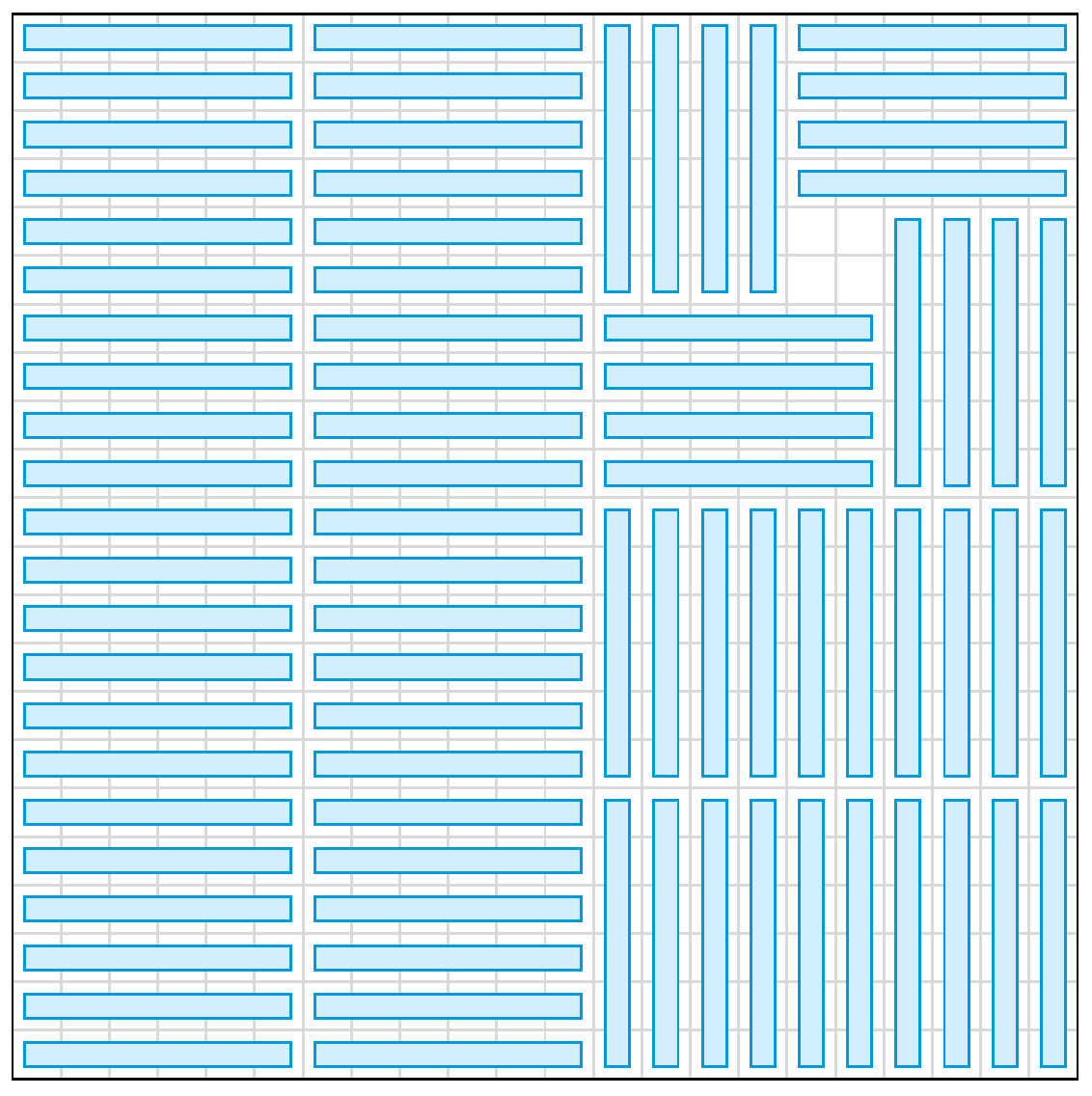Problem Description:
Consider the problem of tiling an n×n chessboard by polyomino pieces that are k×1 in size; Every one of the k pieces of each polyomino tile must align exactly with one of the chessboard squares. Your task is to figure out the maximum number of chessboard squares tiled.
Input:
There are multiple test cases in the input file.
First line contain the number of cases T (T≤10000).
In the next T lines contain T cases , Each case has two integers n and k. (1≤n,k≤100)
First line contain the number of cases T (T≤10000).
In the next T lines contain T cases , Each case has two integers n and k. (1≤n,k≤100)
Output:
Print the maximum number of chessboard squares tiled.
Sample Input:
2
6 3
5 3
Sample Output:
36
24
题意:给出n*n的矩阵,用1*k规格的骨牌填充它,问最终最多填充多少格子。
分析:如果n<k,矩阵中无法放骨牌,所以只用考虑n>=k的情况:
首先如果某个覆盖方案中仅剩下一个s*s的正方形区域没有被覆盖到,并且s<=k/2,那么这个方案一定最优(详情见下图)
有趣的是,当 n ≥ k 时,让整个棋盘仅剩一个边长不超过 k / 2 的小正方形区域没有覆盖到,这是一定能做到的。不妨把 n 除以 k 的余数记作 r 。如果 r ≤ k / 2 ,那么我们可以直接用横着的小矩形从左向右填充棋盘,再用竖着的小矩形填充余下的部分,最终会剩下 r × r 的小正方形区域。

如果 r > k / 2 呢?我们可以用和刚才类似的方法填充棋盘,使得棋盘右上角仅剩一个 (r + k) × (r + k) 的正方形区域。然后再用 4r 个小矩形像风车一样填充这个 (r + k) × (r + k) 的区域,使得正中间只剩下一个边长为 k – r 的小正方形区域。由于 k – r < k / 2 ,因而此时的覆盖方案再次达到最优。

#include<stdio.h> #include<string.h> #include<queue> #include<math.h> #include<stdlib.h> #include<algorithm> using namespace std; const int N=1e3+10; const int INF=0x3f3f3f3f; const int MOD=1e9+7; typedef long long LL; int main () { int T, n, k, ans, a, r; scanf("%d", &T); while (T--) { scanf("%d%d", &n, &k); ans = -INF; if (k > n) ans = 0; else { r = n % k; if (r <= k/2) ans = n*n-r*r; else { a = 4*k*r; a = (r+k)*(r+k)-a; ans = n*n-a; } } printf("%d ", ans); } return 0; }